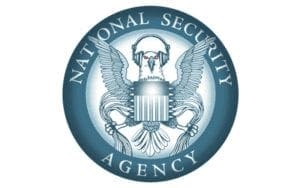Don’t be surprised when Garland is used as an excuse to renew the Patriot Act
This article was featured in our weekly newsletter, the Liberator Online. To receive it in your inbox, sign up here.
Supporters of the NSA’s domestic spying programs say that a vast data collection effort is needed more than ever to prevent terrorist attacks in the United States, but they are unable to point to any specific example of foiled terrorist plots through these unconstitutional, privacy-violating programs.
In June 2013, Gen. Keith Alexander, then the Director of the NSA, claimed that the spying programs prevented “potential terrorist events over 50 times since 9/11.” Testifying before a Senate committee in October of the same year, Alexander backtracked after Sen. Patrick Leahy (D-Vt.) grilled him for misleading the American public.

“There is no evidence that [bulk] phone records collection helped to thwart dozens or even several terrorist plots,” said Leahy. “These weren’t all plots and they weren’t all foiled. Would you agree with that, yes or no?” he asked the NSA chief.
Alexander, realizing he had been put on the spot for peddling misinformation, simply replied, “Yes.”
Of course Alexander was more honest than his colleague, Director of National Intelligence James Clapper, who lied about the NSA domestic surveillance program in a March 2013 Senate hearing. He was accused of perjury, although the allegation went nowhere in a Congress filled with pro-surveillance members.
Two government panels – President’s Review Group on Intelligence and Communications Technologies and the Privacy and Civil Liberties Oversight Board – have since determined that NSA’s domestic spying programs have not played a role in thwarting terrorist attacks.
The attack on Sunday evening in Garland, Texas at the “Draw Muhammad” event hosted by an anti-Islam organization will undoubtedly be used as a reason to reauthorize a soon-to-expire provision, Section 215, of the USA PATRIOT Act by which the federal government claims the vast authority to spy on Americans.
But such claims should be met with a large dose of skepticism. One of the suspects involved in the attack had already come across the FBI’s radar. The United States’ top law enforcement agency began investigating him in 2006 on the suspicion that he wanted to join a terrorist group in Somalia.
The alleged attacker lied to federal authorities. He was convicted in 2010 of making false statements and sentenced to three years of probation. He was, however, able to avoid being placed on the “no-fly” list.
The alleged attackers in Garland are precisely are the needle for which the federal government claims that it needs the haystack, and intelligence and law enforcement officials failed to prevent what could have been a mass murder.
The NSA’s resources are spread too thin. Collecting the phone calls of virtually every American – the proverbial “haystack” – even if the people on the call are not suspected of any terrorist involvement, not only betrays the constitutionally protected rights defined by the Fourth Amendment, but also makes Americans less safe because intelligence agencies may not be able to connect the dots efficiently and effectively.
Rather than using the Garland attack as tool to further reauthorization of Section 215, which expires on June 1, lawmakers should seriously reexamine the approach to intelligence, requiring agencies like the NSA to focus on actual terrorism suspects as opposed to innocent Americans calling their families and friends.

























